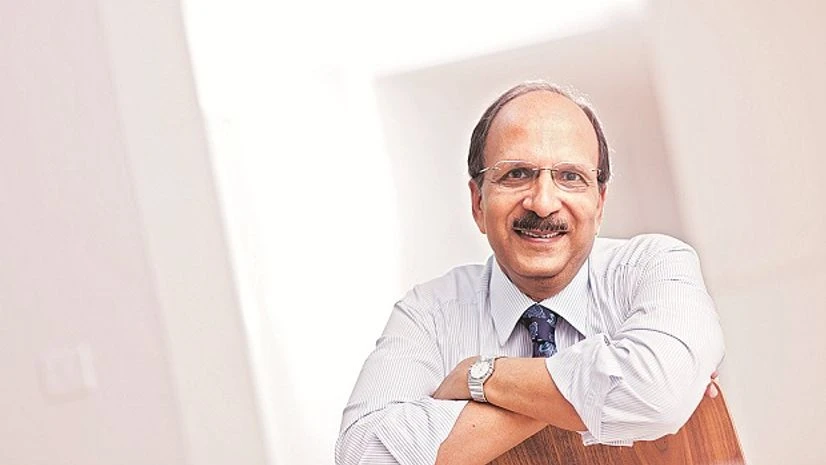Rising health care costs are a worry across the country. Patients want to pay for good diagnosis, advise and treatment; not for frills. RATAN JALAN, former CEO of Apollo Hospital who also created the Apollo Clinics and the Cradle, argues that good health care can be kept affordable if the hospitals so desire. The IIT-Kharagpur and Harvard Business School alumnus now runs a boutique health care consulting firm out of Hyderabad. Edited excerpts of a chat with Anjuli Bhargava:
How can hospitals try to keep their costs lower?
How can hospitals try to keep their costs lower?
Hospitals need to ask themselves what cost elements can we remove without compromising on quality or losing a single customer. We rarely come across hospitals with an impressive cost containment strategy.
A lot of hospitals, for instance, still choose to own rather than lease space despite the high cost of real estate and investor's preference for asset light models. This doesn't really make sense as you don't get valued for what you invest in land and building. Moreover hospitals opting for large-scale replication should be able to achieve significant economy of scale, both in terms of project cost and operational expenditure.
Hospitals need to focus on ensuring high utilisation of capital-intensive assets. An expensive resource like the operation theatre complex for instance doesn’t get used for more than 50 hours per week. It’s the same with some high-end diagnostic equipment that hospitals procure but don’t end up using optimally. Outsourcing some of the non-core services can also work well.
Aravind Eye Hospitals – a not for profit entity – has been one exception. It has a no frills infrastructure and focuses on process efficiencies. As a result, it manages to generate surplus despite offering free care to almost half its patients and at cost to another 20%. It set up an in house intraocular lens manufacturing facility of global standard to ensure significant savings in material cost.
Also Read
Medanta Medicity in Gurgaon leveraged outsourcing options — they tied up with Guardian for their pharmacy operations. Some others have outsourced diagnostics and at times services like dialysis, ophthalmology or even the entire gamut of oncology services. More hospitals need to explore such options.
How can hospitals try to keep things simple on the premise that complexity adds to costs?
In healthcare, complexity seems to have become the norm. It reaches its peak more because a hospital typically aims to treat every possible ailment or organ and does that for patients from almost any income segment. I have rarely come across hospitals rationalising services or simplifying the frustrating maze of procedures a patient or his relatives go through. Even a simple outpatient visit, which may involve a physician consultation, a couple of diagnostic tests and buying some medicines, a patient, to his utter frustration, is required to make multiple visits to different cash counters and service counters and often without much guidance. A patient who is already stressed suffers even more.
Have you ever wondered why hospitals still take four hours, on an average, to discharge patients? Hospitals dealing with limited specialties or patient segments tend to fare a lot better since they are able to provide higher quality services and that too, at a lower cost.
You argue that hospitals need to drive infection control the way an airline looks at on-time performance...how and why?
Infection control is one of the many things. You'd be surprised at how many patients catch new infections while in hospital. Hospital acquired infections impact over 10% of inpatients even in the best hospitals. It is a critical issue. A hospital could pick infection control as Indigo picked on time performance as a key differentiator.
Such an exercise involves hundreds of small and big steps. Becton Dickson, a globally known medical technology firm, has launched a programme called SAFE-I to provide support to hospitals – especially smaller ones – to improve their infection control practices. The point I am making is that one needs to be fanatical about it and if one does that it can make a remarkable difference. There could be a host of other examples: waiting time, discharge process, overall hygiene and cleanliness, quality of nursing care.
Another thing hospitals fail to focus on is people...and in my view people come first.
When you say people come first...what do you mean?
Two things. One, nothing is more damaging to an organisation than frequent changes in the people, particularly at senior levels. At virtually every big name hospital chain, CEOs, particularly at the group level, have changed almost as frequently as chief ministers in Jharkhand! The average duration of CEOs is probably less than two years. This is mainly in my view because of no clear delineation of the roles between the professionals and the promoter.
I can think of only two hospitals – Wockhardt (in its earlier avatar) and Columbia Asia Hospitals – where the CEOs have had pretty long stints and it shows in their unique culture.
Second, most hospitals do not focus on aspects like career planning, objective appraisals, continuous learning and so on. There’s more lip service. Typically, you have physicians who fight their own battles about how they get discriminated (versus the so-called “stars”), don’t get paid enough or don't get the support they want. Then there is the non-clinical staff who feel marginalised when compared to physicians.

)
